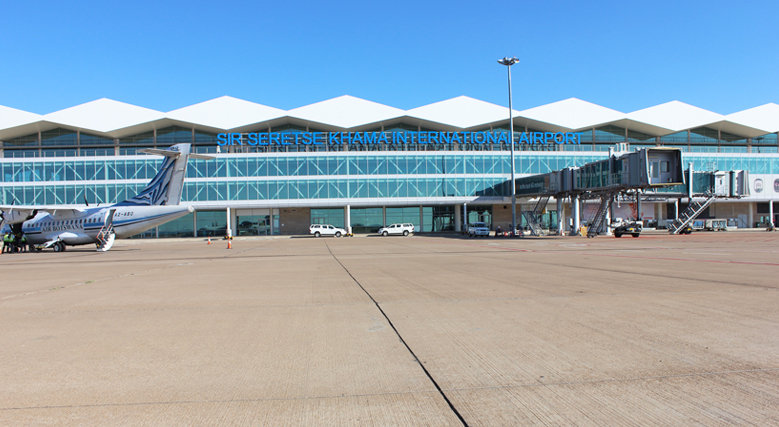- AccusesCAABoffailuretoenforceregulations
- Exposes CAAB to ICAO blacklisting
- Local flying licences could be banned
- Report’s implications could cost the country
millions
LETLHOGILE MPUANG
The latest report by the Office of the Ombudsman alleging possible collusion between the Civil Aviation Authority of Botswana (CAAB), Botswana Qualifications Authority (BQA) and the Department of Tertiary Education Financing (DTEF) in the registration and accreditation of International Aviation Solutions (IAS) is likely to cost the country millions of pula and leave a damning effect on the country’s entire aviation industry, The Botswana Gazette has established.
Titled “And The Rules Were Disregarded,” the damning report claims to focus on exposing maladministration and other irregularities by DTEF, CAAB and BQA in recongnising IAS as a local institution of higher learning and an approved training organisation in 2013 and throughout its operations.
“Despite the fact that the school has never been in full compliance with the applicable regulations, throughout its operations, CAAB and BQA being the regulators, failed to take any action against the school, but rather allowed it to continue operating,” it states. “As a result, a total amount of P155 089 030.05 was frittered away while students were left with no qualification and a bleak future.”
“The investigation thus revealed acts of maladministration and gross irregularities in IAS having been listed as an accredited local private institution by DTEF whilst not qualifying as such, and BQA proceeding to instantly grant it accreditation with no regard to their legally binding accreditation instrument, further CAAB supporting the accreditation by a clearance letter which was unprocedural in terms of the certification process and which in effect exerted undue influence on BQA.”
Responding to questions from this publication this week, CAAB’s Public Relations and Communications Manager, Modipe Nkwe, admitted that the report had the potential to attract serious international backlash with serious implications on the country’s aviation sector. “Admittedly, any adverse finding on the organisation or negative publicity may create an unwarranted perception that could negatively affect its reputation in the minds of the reading public,” said Nkwe.
“CAAB has noted the Ombudsman report and remains respectful of the investigation and conclusions derived from the report. CAAB would be remiss if it dismissed the possibility of a potential backlash. We reassure the public that CAAB will always discharge its regulatory and service provision roles with integrity and hold ourselves accountable.”
CAAB sources who cannot be identified have also told The Botswana Gazette that aviation is one of the most scrutinised industries in the world and that any kind of irregularity found could result in “very severe” measures being taken against CAAB by the International Civil Aviation Organisation (ICAO).
“The report is very damaging for both the country and the CAAB,” one source noted. “If Botswana, through CAAB, was listed by ICAO as a Significant Safety Concern (SSC), it would mean that all licences issued by CAAB, including those of Air Botswana and other operators, are subjected to serious investigation. That could lead to the country losing millions of pula from the aviation sector.”
Botswana has previously been placed under ICAO’s SSC but was cleared in 2016 because ICAO was satisfied with its enforcement activities. In recognition of this, the country was awarded a Presidential Certificate by ICAO for its significant achievements.
While the report is damning, IAS says the report is “somewhat misleading” and has a number of inconsistencies. The institution argues that many of the remedies it proposed to resolve the matter were not captured in the report.
It is also not stated in the report that out of the 168 students that IAS was awarded by government, 120 acquired Private Pilot Licences (PPL) and Commercial Pilot Licences (CPL). The former Minister of Tertiary Education Thapelo Olopeng told the 11th Parliament in July 2019 that some of the students were employed by both private and government entities despite remaining with additional ratings.

